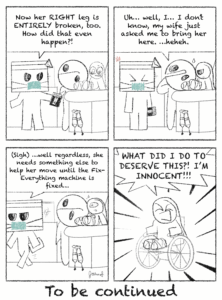One of the most controversial issues discussed today in the National Basketball Association is whether or not to raise the age limit for rookies entering the league.
Over the past few years, a plethora of young high school and college freshman basketball players have been drafted to the NBA, lacking the college experience that most players had in the past.
NBA commissioner David Stern intends to present the Players’ Association with a proposal that requires players to be at least 20 years old in order to participate in the draft. This is a response to the success rate at which players under 20 achieve a niche at the NBA level. Stern argues that higher quality players will be drafted if they had more experience at the college level. It is no surprise that Jermaine O’Neal, the all-star center for the Indiana Pacers, suddenly emerged as the chief opponent to Stern’s idea.
A paragon of what Stern is talking about, O’Neal argues that race plays a role in this decision, because 76 percent of the league is black. Although he made it clear that he does not think Stern or any NBA representative is racist, he realizes that this decision will adversely affect young talented players who are financially unstable.
Although I do not believe the rationale for his argument, I agree with O’Neal that the age limit should remain at 18.
Look at the successful players who the NBA drafted when they were under 20 years old. Carmelo Anthony of the Denver Nuggets, Kobe Bryant of the Los Angeles Lakers and Amare Stoudemire of the Phoenix Suns rose straight to the NBA only a year or two removed from high school.
For every Kobe Bryant, there are more young NBA players who have not had success in the league. One glaring example would be Kwame Brown.
The No. 1 draft pick for the Washington Wizards in 2001, the inexperienced Brown was already being compared to Kevin Garnett. It has been four years since then, and he has yet to meet everyone’s expectations.
Despite this, I still do not agree with the new proposal to raise the draft age limit. You can also see some of this lack of success with some players coming out with more than one year experience in college as well.
Steve Nash of the Phoenix Suns played four years of college basketball in the University of California-Santa Clara, but only started to excel in the NBA in the 2000-01 season – he was drafted in 1996 – when he started averaging double digit points and over seven assists a game. I could make similar arguments for other players, as well.
Stern would use Emeka Okafor of the Charlotte Bobcats and Ben Gordon of the Chicago Bulls as prime examples of successes in the NBA with more experience than younger players. If that happens, O’Neal should use James and Anthony as a rebuttal.
It is best to not change the rules at all. The NBA executive board should follow a non-interventionist policy, since it would produce the best results possible.
If managers and owners of NBA teams feel that it is best to recruit 18 year olds straight from high school, let it be. If these newly drafted young men do not meet manager expectations, the decision- makers of the franchise would re-evaluate their strategy.
They may decide later that it is not to their best interest to draft certain stars at such a young age and instead decide to recruit talented college juniors or seniors.
If teams realize that high school talent is the way to build a formidable team, then that’s what it should be.
If teams see that Stern is right, that college students are overall a better choice than high school players, they will make the right decision.
Jermaine, make us proud and don’t let this happen.
Lee can be reached at alee@campustimes.org.
